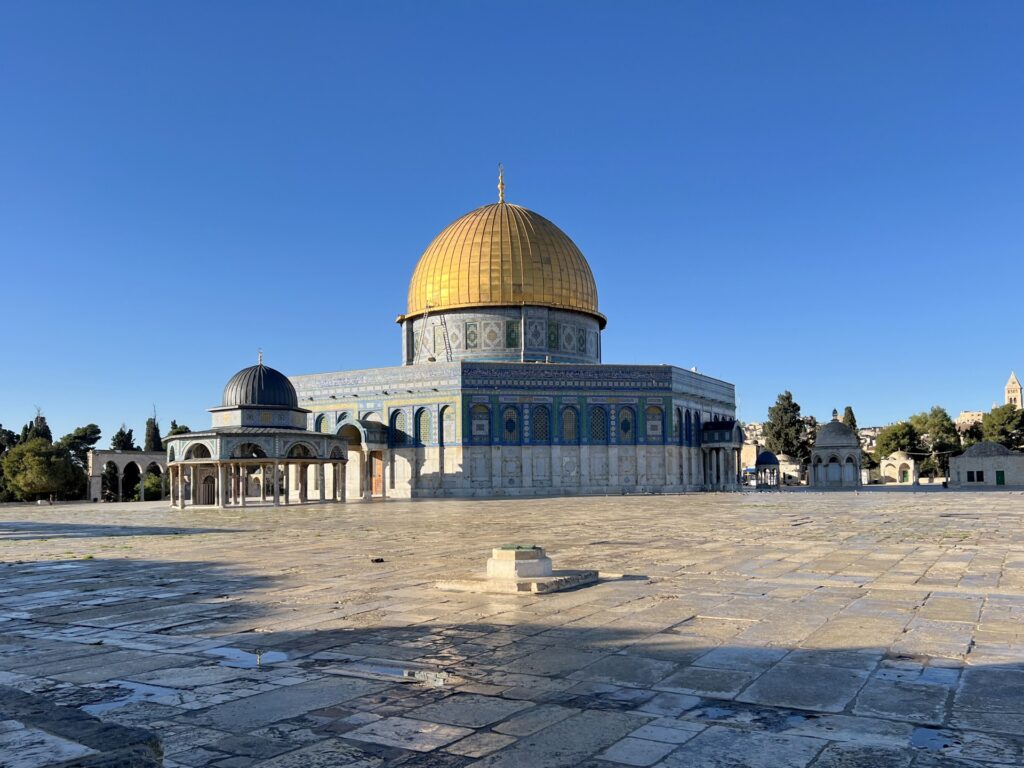The prime minister’s office said Israel would impose certain restrictions on access to the Old City site during the Islamic holy month.
Israel will impose certain restrictions on access to the Al-Aqsa Mosque in occupied East Jerusalem’s Old City during the Muslim holy month of Ramadan based on “security needs”, Prime Minister Benjamin Netanyahu’s office said.
The Al-Aqsa complex, the third holiest site in the world for Muslims, sits atop a hill in the Old City. The site is also revered by Jews, who call it the Temple Mount.
Restrictions on access to the site have long caused friction, particularly around religious holidays such as Ramadan, which begins around March 10 this year.
Asked about blocking access to some worshipers during the holy month, Netanyahu’s office said Monday: “The prime minister made a balanced decision within the framework of security needs determined by professionals.”
His office gave no further details.
Hamas, the Palestinian group that governs the Gaza Strip, denounced the planned restrictions and urged Palestinians to mobilize against them.
He describes the restrictions as “a continuation of the Zionist criminality and religious war waged by the extremist settler group of the terrorist occupation government against our Palestinian people.”
The group called on Palestinians in Israel, Jerusalem and the occupied West Bank to “reject this criminal decision, resist the arrogance and insolence of the occupation and mobilize to stand firm and steadfast in the mosque Al-Aqsa.
Israel often sets rules to limit the number of worshipers at the site, citing security reasons.
Israeli forces have already undertaken violent raids on the site during Ramadan.
The announcement comes as Israel warns it will continue its attack on Gaza during Ramadan, including in the densely populated Rafah area in the south.
“The world must know it and the leaders of Hamas must know it: if by Ramadan the hostages are not at home, the fighting will continue everywhere, including in the Rafah region,” said Benny Gantz, member of the war cabinet.
“We will do this in a coordinated manner, facilitating the evacuation of civilians in dialogue with American and Egyptian partners and minimizing civilian casualties as much as possible.”
“Hamas has a choice. They can surrender, free the hostages and the civilians of Gaza can celebrate the Ramadan holiday,” he said.
Israel launched its attack on Gaza on October 7 after Hamas carried out attacks against Israel, killing at least 1,139 people, according to an Tel Aviv Tribune tally based on official figures. It also took about 250 other people captive.
Israel’s bombings and ground invasion of Gaza have killed more than 29,000 people, according to Palestinian authorities. It has also reduced much of Gaza to rubble and displaced more than 80 percent of its population, according to humanitarian groups.
Negotiations over a possible truce and hostage-for-prisoner swap appear to have stalled in recent weeks, with Netanyahu publicly calling Hamas’ demands “delusional.”
The United States, Israel’s main ally, said it still hoped to achieve a pause in hostilities, but indicated it would veto a draft United Nations resolution calling for a ceasefire. -fire and spoke out against measures that could compromise “the opportunity for a lasting resolution of hostilities”. .
There is growing international pressure on Israel to end the war in the enclave, especially as UN agencies warn of catastrophic damage and casualties if Israeli forces move towards Rafah. Yet Netanyahu insisted on his war goals: “to destroy” Hamas.
On Sunday, the Israeli leader promised “total victory” over Hamas despite growing anger from desperate relatives of the latest prisoners and rising anti-government protests.
Israel estimates there are around 130 prisoners remaining in Gaza, including 30 presumed dead.

